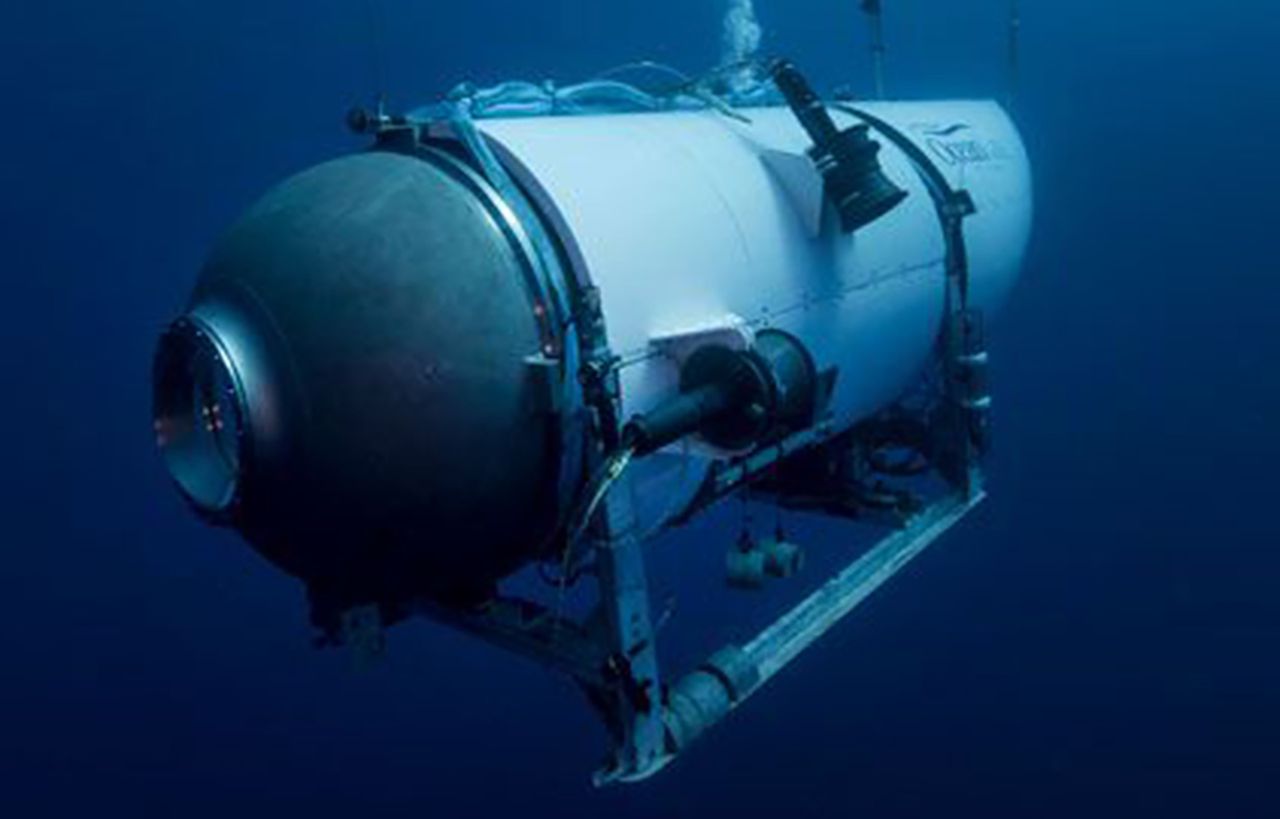What does it say when we care more about five rich guys in a tiny sub?
Samuel Johnson, the British author and linguist, said, “Every man thinks meanly of himself for not having been a soldier, or not having been at sea.” I’ve never been at sea, but I do know this: Being at sea is relatively safe, as long as you don’t forget how quickly the sea will kill you.
The sea is also a source of great tales and great drama. (It’s not for nothing that they’re called “sea stories.”) In the past several days, the world has had a double dose of drama on the high seas.
In one story, five men were crushed to death in a millisecond, when a combination of new technology and poor judgment killed them as they attempted to visit the wreck of a ship that sank for the same reason — new technology coupled with poor judgment.
In the other story, several hundred people drowned when bad judgment and poor seamanship capsized the overloaded trawler on which they were traveling.
The role government played in both these events is interesting, but more telling is the different way the news media reacted to these deaths.
The refugees, many of whom were Pakistani, died because human smugglers overloaded a fishing boat, and because the Greek coast guard was apparently ineffective in conducting a rescue. More than 100 survivors were taken aboard a mega-yacht owned by a Mexican billionaire family. Survivors said the trawler sank when the Greek coast guard attempted to tow the vessel out of its area of responsibility.
The five men who were killed attempting to see the wreckage of the Titanic were crushed to death before their tiny submersible reached the bottom of the Atlantic. The United States and Canadian Coast Guards searched for the sub for days — even though the U.S. Navy had reported that sounds consistent with the vessel imploding were heard at the exact time the sub’s mothership lost contact.
The major news outlets focused on the sub. The tragedy of four tourists (the fifth victim was the CEO of the company running the expedition) paying a total of $1 million to get a glimpse of a steamship that sank more than 100 years ago was more newsworthy than a boatload of drowned refugees.
Before you blame the “mainstream media,” you should understand that such a thing no longer exists — if it ever did. The internet and the demise of daily newspapers have ended the time when every part of the globe was covered by experienced and well-trained journalists.
Though news-gathering changed dramatically during my career as a journalist, and is still changing, one thing is constant: News reporting is driven by what you — the consumers — want to see, hear or read about. Knowing what will appeal to you is called news judgment.
Like little Timmy trapped in an abandoned well on the family farm, an unusual story of five wealthy men killed on Father’s Day — including a father and son — is more appealing than the all-too-common deaths of a bunch of poor people trying to emigrate from one country to another.
It seems so wrong to concentrate on those few rich men on the sub and turn away from the deaths of the men, women and children who drowned as they fled poverty and oppression. Surely, it’s just as wrong to attempt to tow an overloaded fishing trawler as it is to descend in a submersible vessel that marine experts, other passengers and a journalist had declared unsafe.
The fact that the sea is a great leveler, a dangerous and unforgiving place, is not news. What is, or should be, news is how we react to these events, what we find fascinating and what we’d rather ignore.
And then there’s the irony of a mega-yacht owned by a family whose country knows the tragedy of dying migrants all too well, rescuing most of the survivors of the Mediterranean tragedy. Mariners have a moral and legal responsibility to rescue those in peril on the sea, yet the yacht has gotten more attention than the reason the refugees were there in the first place.
The bottom line is, the failures of people to act responsibly caused the deaths in both cases. The sea is a cruel leveler that kills princes and paupers with no partiality.
What is equally clear, and more important, is this: Why do we care more about the few and less about the many? What does that say about our values?
There, then, is the difference in our selfish nature and our measured judgment. Our selfish nature wants to concentrate on what frightens or fascinates us. Our measured judgment demands that we decide what is important more thoughtfully than that.
This calculus is more important, and more cruel, than the sea could ever be.
Frances Coleman is a former editorial page editor of the Mobile Press-Register. Email her at [email protected] and “like” her on Facebook at www.facebook.com/prfrances.
